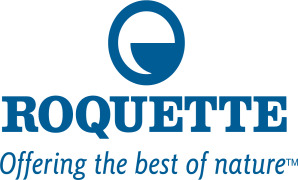News
Allergen-free foods gain momentum
5 Nov 2018Launches of allergen-free foods have increased in recent years – and not just because of increased prevalence of food allergy.

More Europeans than ever are thought to suffer from a food allergy, with up to 17% of the population now affected, according to the European Academy of Allergy and Clinical Immunology. Prevalence is more common among children, and allergic reactions can be very serious, sometimes even fatal, meaning food manufacturers are under pressure to ensure their foods are safe for allergic consumers.
Under EU law, the food industry must list the 14 most common food allergens on product packaging: peanuts, tree nuts, soybeans, mustard, eggs, lupin, milk, fish, cereals containing gluten, celery, sesame, sulphur dioxide, molluscs and crustaceans. For products that do not intentionally contain these ingredients, current industry best practice is to take precautions to avoid cross contamination and to alert consumers to their possible presence.
However, a growing number of companies has started producing allergen-free foods and drinks. According to Euromonitor International, total free from sales in Western Europe increased 11.7% in 2017, and 8.7% in Eastern Europe – and most of the sales growth did not come from consumers with allergies. In particular, foods and drinks with a lactose-free or gluten-free positioning have gained a strong presence, with many consumers identifying such products as healthier and easier to digest, and reporting that they feel better consuming them.
Plant-based milk and dairy alternatives have been a key driver for the lactose-free market, as a growing number of consumers choose to switch out cow’s milk, often citing health, animal welfare and environmental reasons, rather than allergies. Indeed, the global market for dairy alternatives drinks alone has more than doubled in value since 2010, according to Innova Market Insights, and new dairy alternative product launches grew 20% a year from 2012 to 2016.
Meanwhile, naturally gluten free grains and pseudo-grains, such as amaranth, quinoa, chia and sorghum are on the rise, offering a nutritional boost and improved texture in gluten free baked goods and snacks. According to Mintel, the number of new foods and drinks launched globally containing chia, for example, grew 70% from 2014 to 2015, while those containing quinoa rose 27%.
This rapidly rising interest in allergen-free products has prompted ingredient companies to develop new ingredients for the allergen-free market, and to highlight existing ones. Companies including Palsgaard, Hydrosol and DuPont Nutrition & Health have introduced ingredients to deal with the taste, stability and textural issues that many plant-derived dairy alternatives face, while Jungbunzlauer has launched a range of minerals specifically for fortifying such products. Avebe and Roquette highlight their potato protein and pea protein ingredients respectively for their allergen-free credentials, while BENEO has a strong allergen-free platform for its specialty rice ingredients.
According to Mintel, the ‘health halo’ of allergen-free foods and drinks is a key purchase driver, but their nutritional profile must match consumer expectations for healthy products. Its research found that over half of UK free from consumers would stop eating these products if they thought they were less healthy than standard foods, such as being higher in sugar or salt.
Food allergies may not be the main market driver, but their increasing prevalence means many more people live in households where certain ingredients are off limits for the whole family, and these non-allergic consumers are looking for alternatives too. As a result, the rise of allergen-free foods looks set to continue as it taps into so many current market trends, including for more sustainable, more wholesome and minimally processed foods.
Related news

UK to ban junk food TV advertisements before 9pm
3 Oct 2024
In a bid to reduce childhood obesity, the UK government has introduced a policy, coming into effect on 1 October 2025, banning junk food advertising on television before the 9pm watershed.
Read more
Which food and beverage brands made TIME’s Most Influential Companies list?
2 Oct 2024
Chickpea pasta, prebiotic sodas, food boxes, non-alcoholic beer, and a soil carbon marketplace are the specialties of the five food and beverage brands that earned a spot on TIME’s 2024 list.
Read more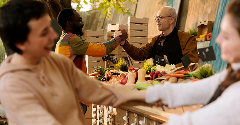
New environmental food scoring standards emerge
30 Sep 2024
EIT Food and Foundation Earth collaborate to launch environmental food scoring for products entering the global supply chain.
Read more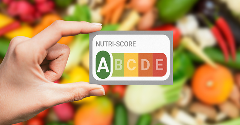
Danone removes NutriScore from products
20 Sep 2024
Following an algorithm update that gives some of its sweetened drinks a worse score, Danone has removed the front-of-pack label, NutriScore, from all of its products – putting profit before public health, say campaigners.
Read more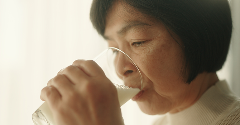
Nestlé develops a new fat reduction method for dairy ingredients
26 Aug 2024
A Brazil-based Nestlé research and development team has developed a way to reduce the fat in milk powder by as much as 60%, without impacting the key characteristics that consumers enjoy.
Read more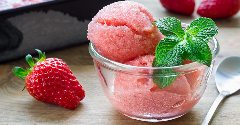
Better Juice expands its range to sorbets
16 Aug 2024
Food tech startup Better Juice has developed a technology to reduce the sugar content in fruit sorbets. The process retains the natural vitamins, minerals, and flavours of fruit, while offering manufacturers an easy-to-implement and scalable solution t...
Read more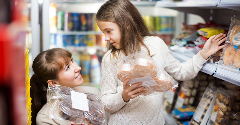
German study reveals high sugar, fat, and salt levels in children's foods
13 Aug 2024
The food industry is making slow progress in reducing the high levels of sugar, fat, and salt in German food and beverage products marketed to children, according to the Max Rubner Institute (MRI).
Read more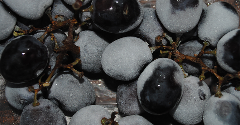
Swedish court overturns prohibition on winery’s use of imported frozen grapes
12 Aug 2024
Swedish company Drood Winery has successfully challenged the Swedish Food Agency’s decision to prohibit the production and sale of their product made from frozen grapes imported from Iran.
Read more
Paris Olympics: Food and beverage brands champion health, fun, and sustainability
5 Aug 2024
Food and beverage brands are aligning with the Paris Olympics 2024 Food Vision, which emphasises sustainability, local sourcing, and plant-based diets.
Read more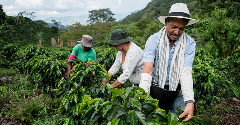
The coffee supply chain is failing farmers, says Solidaridad
30 Jul 2024
The coffee industry’s economic model means its profits do not reach farmers, despite there being enough value to be shared all along the supply chain, according to a new report by Solidaridad Network and IDH.
Read more






